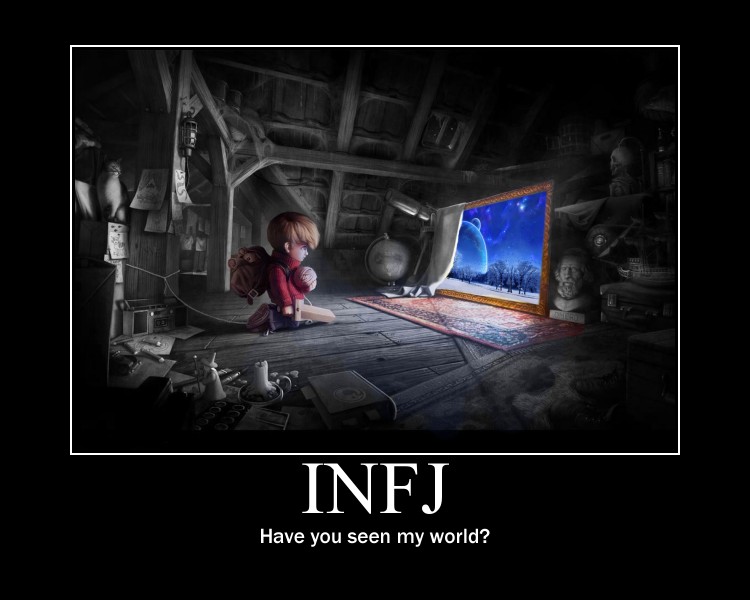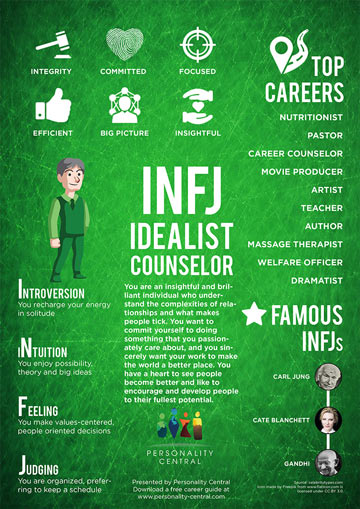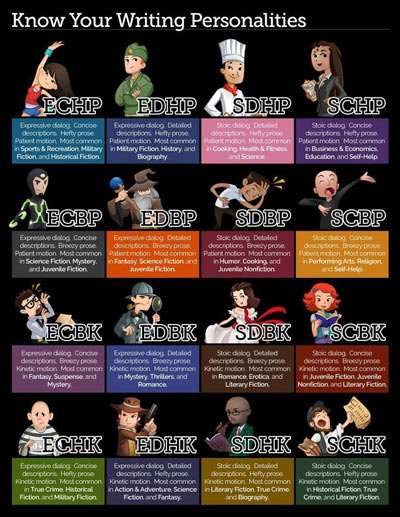Writers must know their writing personality. They must also discover, and write with, their unique voice. There’s even 7 Great Reasons for Non-Writers to Discover their Writing Personality.
In this essay, I’ll describe my writing personality and voice, for three reasons:
- So that my children will better understand their father, his vantage point, and the writing goals of McGillespie.com.
- To provide one example, one breadcrumb thrown down, for other writers (and knowledge workers).
- To complete the exercise under the artificial duress of having to publish it.
The Path of Discovery
I found my writing personality and voice by:
- Writing, and singing, lyrics and songs. I remember melodies and forget lyrics. When I can’t remember the lyrics I make them up to fit the melody.
- Writing for over 10,000 hours. Non-writers don’t need to do this. More crucial, for me, was …
- Knowing what I wanted to write about. At the heart of good writing is angst and anger. I write to keep the former from turning into a toxic form of the latter. I’m thankful for angst. It impels me to read, think, and write to achieve clarity on what’s causing it.
- Over-learning subjects that are important to me. I’ve taken many writing courses, such as Stephen King’s “On Writing”, Julia Cameron’s “Artist Way”, and Jeff Goin’s “Intentional Blogging”.
- Having a keen desire to master the “active literacies” of writing, argumentation, and public speaking to write the script of my own life.
Reading Personality
I love being immersed in a great story! That’s why I read so much non-fiction: The greatest stories ever told are about what really happens; what people really do.
My reading is non-fiction, punctuated by ecstatic binges of fiction (Which I’ll only read if recommended by a friend). If you often say, “You can’t make this stuff up!” or, “If this happened in a movie or book no one would believe it!”, perhaps you’d enjoy reading more non-fiction, as well.
Writing Personality
INFJ
I’m an INFJ on Meyers Briggs personality tests (MBPTs) with primary and alternative traits of:
Introversion over Extraversion (59%)
Intuition over Sensing (50%)
Feeling over Thinking (31%)
Judging over Perceiving (25%)
I’ve take more extensive versions of the MBPT but have misplaced the results. Those results are probably more accurate on the percentages. Still, I’m consistently an INFJ and, more rarely, INFP. That would be consistent with the above results as the “Judging” dominance is only 25% over “Perceiving”.
‘Careers’
The online test says INFJ’s might excel in “careers” around: Education, Law, Psychology, Psychotherapy, Arts and Humanities, Graphics Design and Multimedia, Humanities, Social Services, Health Care, Early Childhood Education, Librarian.
Note: I put quotes around “career” because it’s a silly word when applied to most people. There are lifetime occupations and callings. But, most people change jobs an average of six times over a lifetime. My experience in corporate America was that the word “career” is used to keep the employee motivated, and invested, in long term benefits that may, or may not, ever materialize. I’m all for people respecting the big picture of the company they work for. The word, “career”, however, is often a lying word used to sell something.
Communication Skills
To help others wherever possible, and even when it seems impossible, is what fills an INFJ’s life with meaning and serves as their main motivation. This is their main orientation in the world, and it defines how they relate to events and to people around them.
In communication INFJs come across as thoughtful, supportive, and caring. Communication with an INFJ is pleasant and easy, since they are inherently well-disposed towards the other party. They are attentive and empathetic to other people’s feelings. Whenever one communicates with an INFJ, he or she instantly feels just how much they care about the people they know.
INFJs find it easy to communicate with people of various types and on variety of topics. However, INFJs can occasionally come across as somewhat reserved in their communication. Yet what they do when they appear reserved is taking time to sort out their feelings and thoughts of other people or current events.
An INFJ’s everyday social circle is unlikely to be extensive. It mostly consists of close friends, colleagues, and family members.
Those who work in the same field (e.g. coworkers or colleagues) are often reliant on, or interested in, an INFJ’s expert opinion of counsel on professional subjects. An INFJ is perfectly capable of maintaining an eventful business communication agenda involving an exchange of ideas and opinions, as well as practical solutions.
BookGeome Project
This BookGeome personality chart is based on uses of dialogue, descriptions, prose, and pacing in fictional writing. Amber Helt explains how to use the chart. Though I write non-fiction I went through the exercise for the sake of completeness.
DIALOGUE — Expressive (E) vs. Stoic (S)
DESCRIPTIONS — Detailed (D) vs. Concise (C)
PROSE — Hefty (H) vs. Breezy (B)
MOTION — Patient (P) vs. Kinetic (K)
That would make me either an SCBP or an SCHP. That type, they say, is suited to write on subjects of Education, Business, Economics, Religion, Self-Help or Performing Arts. Those are, in fact, many of the subjects I’ve written about in the past.
Weaknesses
My current weaknesses are in editing and speed of publication. I often write thousands of words per day but don’t publish thousands of words per day. My ratio of written-to-published words is about 5-to-1 and that’s too high. The ideal is probably closer to 2-to-1. My ratio is too high for three reasons:
- Lack of brain dominance leads to indecisiveness in the editing process. The many options for phrasing, wording, ordering of paragraphs and sentences, feel more like solving a math problem than editing words. A hypothetical audience would probably see little difference in drafts after the first two.
- Fear of being wrong about something important. The material I write about is often deep territory. There’s usually much research and reading that goes into it.
- Fear of burning through the attention span of the reader before imparting the important points of the piece. This impels me to spend more time — too much time — in the editing phase.
Remedy
Publish more under deadline. I imposed an artificial deadline on this essay for just that reason. The less time I stew over editing choices — after the first two drafts — the better. Happily for all, needless words are omitted by the second draft.
My Writing Personality(s)
Within Jeff Goin’s blogging types, the strongest, for me, is that of an Artist. Almost equally strong is Professor. Only with a subject firmly “in hand” does the personality of a prophet creep in.
Journalist? Only if an important job requires it. My book, The Creature from Galt’s Gulch, required a journalistic personality. Since it’s not my natural personality I find it difficult to write follow-up articles.
Star? None.
Artist
I gravitate towards creativity, beauty, music, art, and entrepreneurship. I appreciate all mediums in which they present.
Beauty and functionality are rarely seen apart from one another. The shape and skin of a dolphin is as beautiful as the jet plane or submarine that mimics it. The reverse is equally true: That which achieves a high level of functionality is inevitably beautiful.
By starting with art, an artist need give up nothing of functionality.
Professor
Writing in the role of a consultant often requires the personality of the “Professor”. The challenge is to impart the information, professionally, without sucking the “voice” out of it. Even dry material is more easily digested when presented in a unique voice.
I like “Playing the professor” as it forces me break things down into implementable steps. That turns data into knowledge, making wisdom possible, and action (Or silence), possible, as well.
Anything that solves a problem is also beautiful, especially to the one with the problem!
Prophet
With artistic eyes, and the eyeglasses of the professor, I can sometimes look out at the landscape of the subject and make predictions. Such “prophecies” are not outcomes I wish to be so. They’re outcomes I think likely to occur given the trajectory of the predicting elements of the matter at hand.
Only a fool would underestimate the power of man’s free will. Even in the Bible, foreknowledge is not predestination.
Voice
Take away the voice and all that’s left are facts and data. Even formal expression is more interesting, and easier to digest, when presented in a unique voice.
The activities and desires in “The Path of Discovery” are how I discovered my writing voice. I’ll try to fit those discoveries in the acronym of S.H.A.P.E.: Finding and Fulfilling Your Unique Purpose:
- Spiritual Gifts — Writing, speaking, and possibly flying, are spiritual gifts.
- Heart — Truth, delivered carefully, is the best form of compassion. It is evidence of, and often indistinguishable from, love.
- Abilities (Natural) — Songwriting, musical instruments, learning complex things fast, solving problems, consulting, the “gift of gab”.
- Personality — INFJ, SCBP
- Experience — Musician, Consultant, Songwriter, Writing
Conclusion
The journey to find my voice has been the greatest adventure of my life. Every part of it has thickened the connection between my inner thoughts and outer reality.
It’s a great thing to read and understand everything one can to improve our own lives. It’s a much greater thing to parlay that work into something to inspire, lighten the load of, or shorten the path for, others.
Things that can do that are, in my view, masterpieces.






